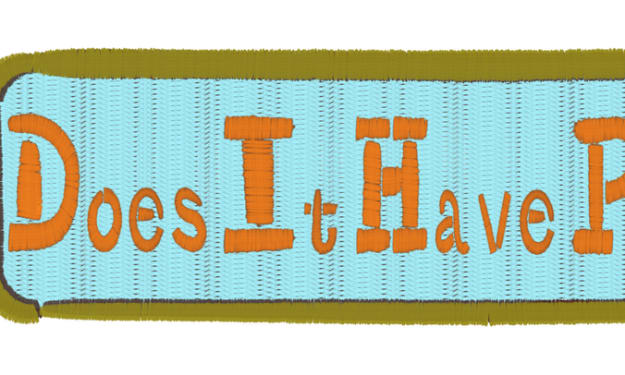Humanising him
Can a minute’s worth of words change the course of a life?

She sits alone, chin nestled on steepled hands, staring at a wall full of posters that need to come down with the end of the semester, awaiting the knock.
He has worked harder than almost anyone in her class, driven by a thirst to prove himself, almost dangerously so.
Short on natural talent, yet his brushstrokes are full of an immense focus, and each work consumes him as he paints. Now tired fingers run through tired hair. What she would give for a class full of students with his intensity.
And yet.
He refuses to take feedback from anyone but her, he forgets to eat or drink or take a break, and he struggles to think outside of the template she sets, stilted and stifled where others find opportunity.
This was his second chance at the exam. They only allow a student to take it twice.
The door, for him, is closed.
A sharp rap of knuckles on wood brings her around.
This will be unpleasant. Tears? Pleading? A tantrum?
“Come in” she calls, half-hoping her response dies in the space between her mouth and the door.
No such luck. In he comes, polished black shoes stepping smartly towards her, feet full of hope. He bows slightly, always one to keep with formalities.
“Ado, please sit.” She gestures to the seat across from her with a warm smile. Despite her news, it’s good to see him again.
He politely declines, standing to attention beside the chair, military-style.
”If it is okay with you Frauen Meyer, I would rather stand. Vater says it reflects better on a man to stand in the presence of a lady.”
”I see. Ado, I…”
She pauses, unsure how to deliver the news now that he is in front of her. Why must she be the one to crush the dreams of her student?
Black hair hangs close to his head, all strands following the same direction down. Clothes are pressed and tucked in, dull colours a reflection of uniform thought, and the case for efficiency. The traces of a moustache remind her that he is not yet a man, though desperate to be seen as one.
Yet his eyes glimmer, tracking her gaze as it falls to the papers between them, seeking a way to postpone the inevitable. Maybe he has already guessed at their content.
“This is the feedback the Academy gave.”
Inwardly she curses, knowing that this is no way to break the news, but it is too late. His eager hands move from behind him to his side, yet he waits for her signal.
She slides the crisp white paper across the space between them, and his hands grasp the sheets, scanning for meaning.
The words fall like hammer blows, and his face twitches, as if to shrug them off.
They write themselves across her mind as he ploughs on, and she imagines what he is feeling.
"The artwork is cold, unfeeling, automatic, structured, and lacking freedom of expression, especially in people or trees.
“Too few heads in the people. Buildings are good."
”The pieces are prosaic, utterly devoid of rhythm, color, or spiritual imagination.”
He throws the papers back onto the table, and finally slumps down into his seat, the cold steel doing nothing to soften the wound. The certainty has seeped out of him, and she can’t help but wonder how a handful of words can crush a young man’s dreams.
She senses a chance to reason with him, and leans in.
”Ado, I am sorry, but the Academy has made their decision. I disagree, but it is out of my hands. That doesn’t mean we are out of options. If you went…”
But he is already up, pacing back and forth, hands locked behind his back.
He stiffens, and nods curtly, just once, accepting that he cannot change their minds. It’s not her that made the call. She believes in him, he’s sure of it. He’ll prove the doubters wrong, make the detractors look foolish.
“Frauen Meyer. Thank you for the time you have put into teaching me. I will not forget it.”
His tone is clipped, and though she knows he means it, she can feel a resentment simmering underneath, the shame burning at his insides.
Before she can reply, he is off, so quickly she is unable to act.
Turning sharply on his heel, his boots click down to the door, his hand deftly twists it open, and the young man steps out without a sound.
With his absence, the tension dissipates, and she sighs heavily, compassion mingling with uncomfortable relief. Now that their lessons are over, she wonders if she’ll ever see Ado again; this determined, serious young man who dreamed of painting for the great halls of Vienna.
Turning away from the rejection letter, she glances out the window, seeking solace in the afternoon sun.
But clouds of grey have swallowed it, and she finds no comfort beyond these walls.
Did they make the right decision? Should she have fought harder on his behalf? Would his pride and ambition carry him through the disappointment?
She forces herself to let it go, and closes the folder of Adolf H.
Maybe it’s for the best.
Author’s note:
This story is not meant to be read as excusing the crimes of Adolf Hitler, but rather to make us think “what-if?”
It came about as a sliding-doors idea, when I learned that he had been rejected twice by the Academy of Fine Arts Vienna as a young man, and pondered what might have happened if he and his paintings had been accepted. Would World War II and the Holocaust have happened?
This story is inspired by real events, but the idea of a conversation between a caring mentor and a young Hitler is completely fictional.
This story is not criticising the decision of the Academy, nor intended to make the reader feel sorry for Hitler. I believe it is possible to both condemn his actions as leader of the Nazi Party, and also to wonder what direction his life would have taken had he been accepted.
P.S. the painting‘s caption should read Munich Royal Hofbräuhaus, not Schloss Belvedere.
About the Creator
Joe O’Connor
New Zealander living in London
Teacher of English and History, and sport-lover
Mostly short stories and poems📚
Feel free to be honest- one constructive comment beats a hundred generic ones
Currently writing James The Wonderer






Comments (4)
This is a subtle and inventive imaginative experiment of the sort that Ado could not have produced. This line is particularly deft, I believe: “ 'Come in' she calls, half-hoping her response dies in the space between her mouth and the door." Instructors who want their students to thrive never relish delivering bad news, and you caught that neatly here.
This might be fictional but it felt so real and your description of a young Hitler was exceptionally believable! What an incredible concept for a story! And the scene was so vivid! Very well done, Joe!
Interesting take on history! One moment can truly change the course of the world.
There was something compelling in the telling of this story, even though I knew as soon as he greeted his teacher, everything that would unfold. I had to stop to fetch something for my partner, and was really feeling the desire to come back, despite knowing.... And now I DO wonder.